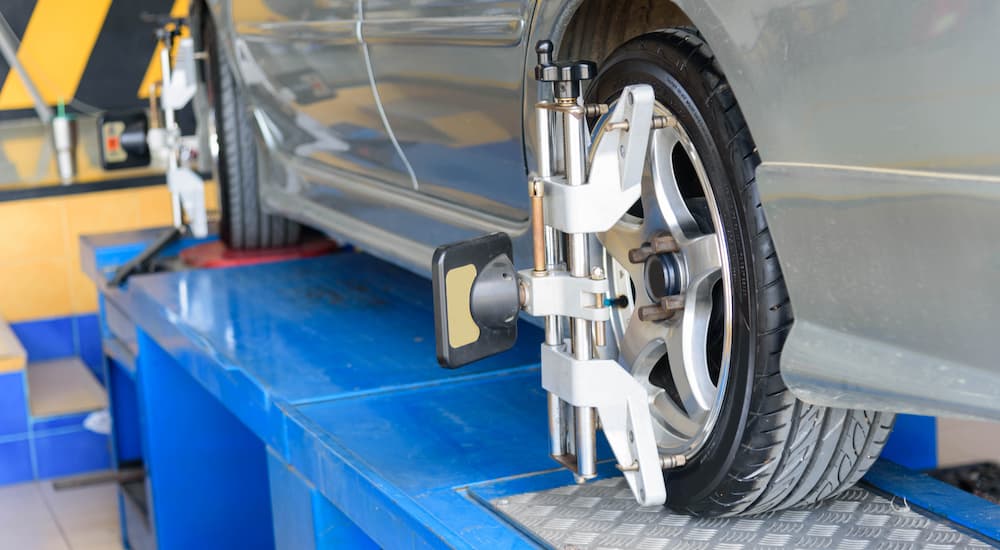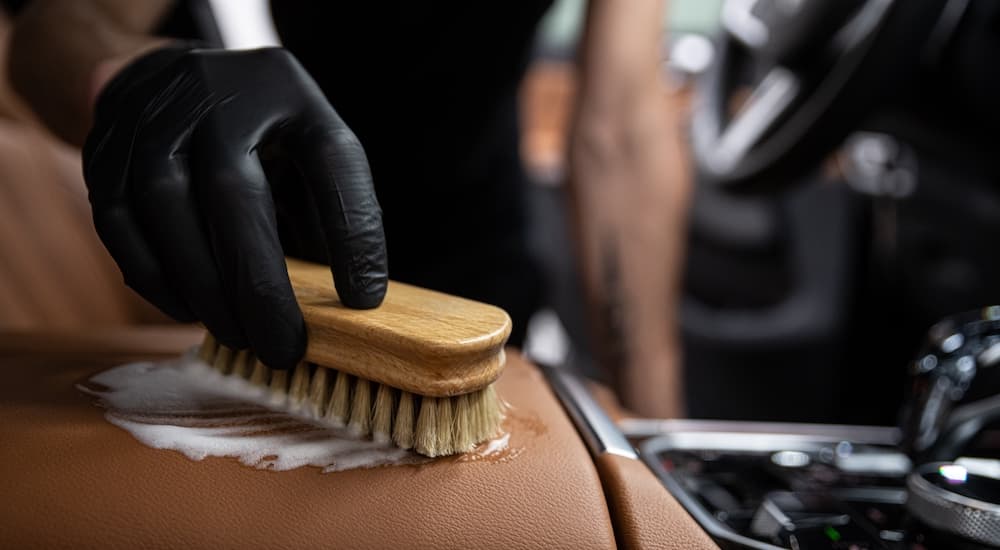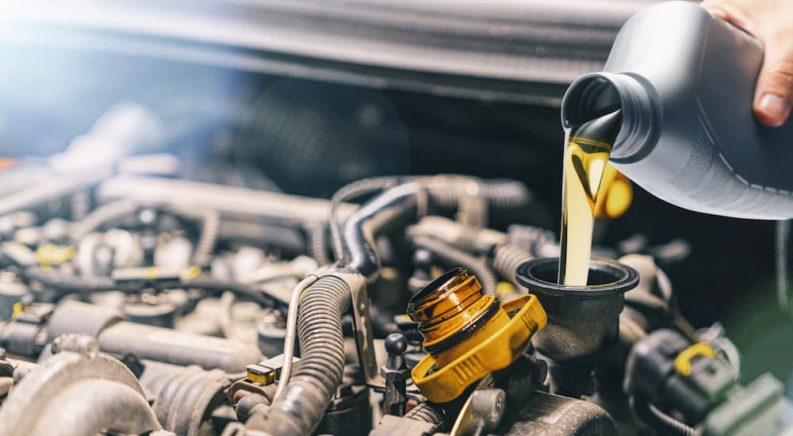There are plenty of drivers who don’t start thinking about their car’s resale value until they’re about to sell it or trade it in for something new. Unfortunately, by that point, it’s too late to do a lot of the things that can make your vehicle a more valuable asset. If you really want to get the highest value possible for your car, then you should be well acquainted with the service department at your local dealership or an auto body shop near you from day one.
Taking care of issues in a timely manner and getting regular service done on schedule is the best way to keep your car’s resale value high. So across the board, here’s one important tip: don’t procrastinate. We know that life can get busy, and things like car maintenance can fall to the back burner, but if you want to avoid depreciation as much as possible, you need to make it a priority. Luckily, many service stations make it easy for you to schedule an appointment ahead of time, so you can fit all of your maintenance and repairs into your schedule.
Oil Changes
We’ll start with an easy one since “make sure you get your oil changed regularly” is one of the most basic and well-known rules of car ownership. With traditional oil, you should get an oil change about every 6,000 to 7,000 miles, while synthetic oil can last around 10,000 miles. Many modern cars will keep track of the oil’s status and give you an alert when it’s time to go in for a refresh. When that happens, do your best not to delay. Running on old oil for too long can cause serious issues. Keeping up with this simple bit of maintenance can keep vital components running smoothly.
Coolant Flush
This service isn’t as well-known as an oil change, but it’s just as important. Coolant keeps your engine from overheating, and if your engine overheats, it can cause major issues, from blown gaskets to a cracked engine block, which can be expensive to repair and show up on your vehicle’s maintenance history when it comes time to sell it. Generally, the coolant should be flushed and replaced around every 30,000 miles.
Alignments
It’s very important for your car to move predictably and go in the direction that you want it to. If your car pulls to the right or left, it can wear through your tires more quickly, make driving more difficult, and be dangerous in some situations. If you notice that your car is pulling to one side, you can bring it in for either a front-end or all-wheel alignment to get it back on the straight and narrow.

Take Care of Your Tires
Tires are the only point of contact between your vehicle and the road, so it’s important for them to be in good condition. Make sure to keep your tire pressure set to the range recommended by the auto manufacturer. If you get a warning from your tire pressure monitoring system, take action immediately. Every 5,000 miles or every six months (whichever comes first), get your tires rotated. This extends their life by making sure that they don’t get worn down unevenly.
Even the toughest tires will have to be replaced eventually. You can use the old “penny test” to see if your tires still have enough tread by sticking a penny head-first into the space between the tread on your tire. If Abe Lincoln’s entire head is visible, then it’s time to replace your tires.
Wiper Replacement
Windshield wiper blades don’t last forever; in fact, they’re one of the things you will find yourself having to replace often. Luckily, they’re one of the cheaper replacement parts out there and shouldn’t cost you too much. How often they need to be replaced depends on where you live: climates with high temperatures can break the rubber down faster, leading to the need for more frequent replacements. Certainly, if you’re using your wipers and notice that they’re not getting the job done, it’s time to swap them out. Having low visibility during rain or snow is dangerous and can make you more likely to get into an accident that can both be a risk to your safety and a liability for the resale value of your car.
Brake Maintenance
It should go without saying that your vehicle’s braking system is vitally important. It’s also made up of several different components, including calipers, rotors, and brake pads, that don’t last forever and will need to be replaced after a certain amount of time. Brake pads should last somewhere from 30,000 to 70,000 miles, and how often they need to be replaced can depend on your driving habits, among other factors, since braking suddenly rather than gradually can wear the pads down faster. If you’re trading in your car and your brake pads are worn down dangerously low, the dealership might also assume that you’re a reckless driver and that the car has other hidden issues, which can lower the price they’re willing to offer you.
Climate Control Service
Even in the most agreeable climates, there aren’t too many drivers who want to buy a car that doesn’t come with working heat and air conditioning. So if you notice that your vehicle’s climate control system isn’t working the way it should, it’s probably worth it to take it in for maintenance. The AC is typically a closed system that doesn’t need much maintenance, but sometimes a part will spring a leak, and the cool air won’t work. The heating system may not work due to clogged parts or faulty wiring. Any of these things can and should be fixed or replaced as soon as you can for your own comfort and before you sell.

Washing & Detailing
Keeping the exterior of your car clean can be as simple as going through a car wash every now and then. How often you need to do this depends on where you live, how often you drive, and whether you park outside or in a sheltered parking space, but you should be able to tell whether you need a wash simply by looking at your car and judging for yourself. Not only do car washes keep your car looking nice, but they also clear away contaminants that can cause corrosion and damage your paint if left unchecked for too long.
Don’t forget to keep the inside clean too. Stained seats or lingering odors can be hard to get rid of if left alone for a while and can bring your car’s value down during an inspection. You can detail your vehicle yourself with some cleaning supplies or take it to a professional. Detailing your car regularly will keep the cabin nice and pleasant, and you should definitely get it detailed right before you sell it or trade it in to give the best impression.
Minor Fixes
Dents, dings, and paint blemishes don’t generally affect the utilitarian function of your car, but they can bring down its value when it comes time to sell. Getting these cosmetic flaws fixed is often pretty affordable and ends up being worth the cost for the extra value it adds to your car. If you like to keep your car looking nice, either for personal or professional reasons, then you can get these services done regularly, but this is one of the few items on the list that can be saved for the last minute.
A Little Care Can Go a Long Way
Keeping track of all of these factors can seem overwhelming to some, especially to first-time car owners, but don’t worry, it’s not as complicated as it seems. For one thing, you don’t need to schedule a separate appointment for every bit of service. For example, if you’re already coming in for an oil change every 10,000 miles, then getting a coolant flush every 30,000 miles is as simple as adding it to every third visit, and most service centers can help you keep track of your maintenance history, so you won’t have to juggle the mental load alone.
Even if you know how to change motor oil or rotate tires yourself, it can be useful to go to a service center for it occasionally to make sure that your vehicle is getting inspected by professionals for any signs of issues you might have missed. That way, if any unexpected problem arises, it’s more likely that it will get caught early. Stay on top of your vehicle’s recommended maintenance schedule, act quickly when things go wrong, and you’ll both expand the life of your vehicle and maximize its resale value.

